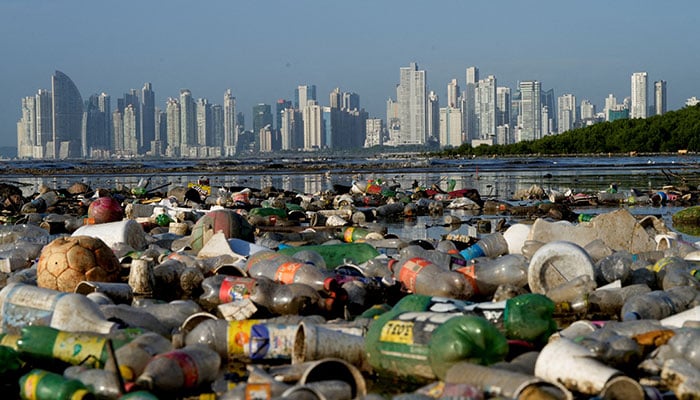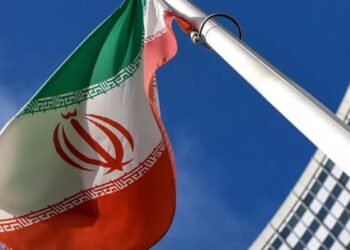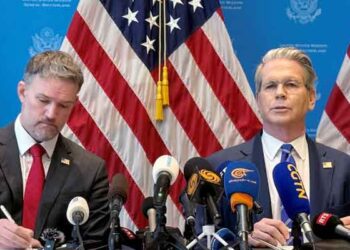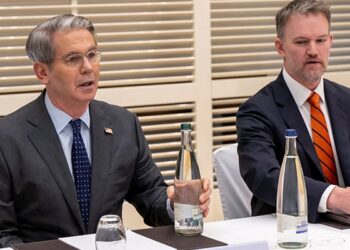Select Language:
Delegates decrying the world’s first binding treaty to address plastic pollution left the Geneva talks without agreement, with some expressing frustration and anger over the 10-day session ending without a deal. Efforts for a breakthrough in the stalled negotiations at the United Nations in Geneva fell short, as countries advocating for a comprehensive treaty argued that the latest draft released overnight failed to meet their expectations.
Luis Vayas Valdivieso, Ecuador’s lead negotiator, announced the session’s end and committed to resuming discussions at a later, unspecified date, receiving a tepid response from exhausted delegates who had been working into the early morning hours. French Environment Minister Agnes Pannier-Runacher expressed her outrage at the outcome, emphasizing that despite genuine efforts and meaningful discussions, no substantial results were achieved.
Colombia’s representative Haendel Rodriguez highlighted that a small group of nations, particularly oil-producing countries, had deliberately blocked progress, specifically referencing opposition from petrochemical-producing nations and the United States under the Trump administration’s policies. Earlier in the month, diplomats and environmental advocates warned that attempts by the European Union and small island nations to limit virgin plastic production—largely derived from fossil fuels—faced stiff resistance from these countries.
U.S. delegate John Thompson declined to comment as he departed the negotiations. The future of these talks remains uncertain, with some officials and nations urging for their continuation, while others see the process as fundamentally broken. South Africa’s representative stated, “It’s very clear that the current approach is ineffective.”
More than 1,000 delegates convened in Geneva for the sixth round of talks, following a failed meeting of the Intergovernmental Negotiating Committee in South Korea late last year. Negotiations extended into overtime on Thursday amid disagreements over the scope of future restrictions. Many, including Danish Environment Minister Magnus Heunicke—who represented the European Union—expressed disappointment that efforts at the final stage did not yield progress.
Heunicke remarked, “It’s tragic and deeply disappointing that some countries attempted to obstruct an agreement,” reaffirming their commitment to continue working towards a treaty to tackle one of the world’s most pressing pollution problems. UN Environment Programme Executive Director Inger Andersen also pledged ongoing efforts, acknowledging that while the outcome was not ideal, public support for a deal remains strong.
Major sticking points include limits on plastic production, regulation of chemicals, and financial support to assist developing countries in implementing the treaty. Despite the deadlock, environmental advocates who oppose weak deals welcomed the rejection of an incomplete treaty—highlighting that “no treaty is better than a bad treaty,” according to Ana Rocha, GAIA’s director of plastics policy.





